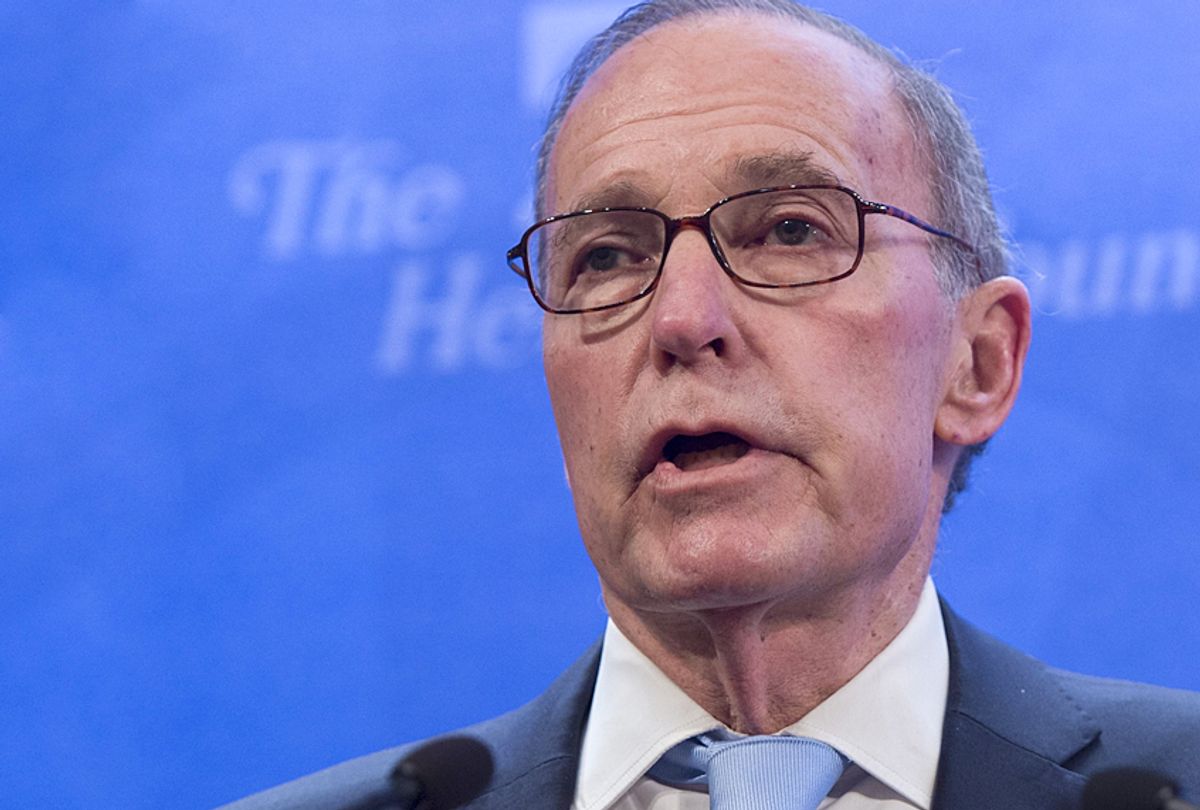President Donald Trump seems poised to name a flamboyant TV star — you know, like what he used to be — as his top economic adviser.
Larry Kudlow is expected to replace outgoing National Economic Council Director Gary Cohn, according to CNBC. Trump offered the position to Kudlow on Tuesday night and the colorful pundit accepted, meaning that the next step will be for Trump to formally make the announcement — an event that is expected to occur as early as Thursday. Kudlow has experience working with Trump, as he informally advised the president on economic issues during the 2016 election, and is generally regarded as sharing most of the president's conservative economic beliefs.
One notable exception, of course, is on the issue of trade. Unlike Trump and very much like the departing Cohn, Kudlow is a free trade fundamentalist who earlier this month co-authored an editorial in National Review that denounced Trump's planned steel and aluminum tariffs. Considering that Cohn's reason for stepping down was his strong disapproval of Trump's tariffs, the selection of Kudlow as his replacement could be seen as an odd choice.
It is one, however, for which Trump had an explanation. When discussing the possibility of Kudlow's appointment on Tuesday, Trump said, "We don't agree on everything, but in this case I think that's good. I want to have different opinions."
"We agree on most," the president added. "He now has come around to believing in tariffs as a negotiating point."
An alarming detail about Kudlow is that he has a long history of making spectacularly poor predictions. These include describing President Bill Clinton's economic policies as a "wet blanket"; anticipating that the second Iraq War would cause the stock market to rise "by a couple thousand points"; and claiming in December 2007 that the early signs of an impending economic downturn should be ignored because "there’s no recession coming."



Shares